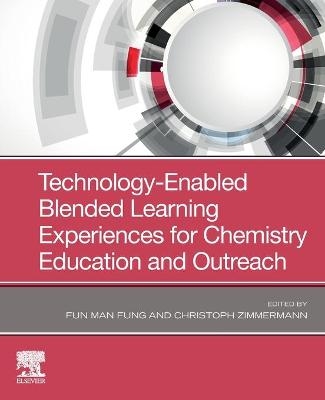
Technology-Enabled Blended Learning Experiences for Chemistry Education and Outreach
Elsevier Science Publishing Co Inc (Verlag)
978-0-12-822879-1 (ISBN)
Case studies supplement the information presented, providing the reader with practicable examples and applications of covered theories and technologies. Drawing on the broad experiences and unique insights of a global team of authors from a whole host of different backgrounds, the book aims to stimulate readers’ creativity and inspire them to find their own novel applications of the techniques highlighted in this volume.
Fun Man Fung, Ph.D. MSc. BSc., earned his chemistry degrees from NUS and Technical University of Munich. As a passionate educator, he devotes his time to teach learners how to learn through innovative digital technology. He researches on how gamifications and videography techniques improve learning outcomes. Since 2021, Fun Man is a member of the Editorial Advisory Board at the Journal of Chemical Education, ACS Publications. He also served on the International Chemistry Olympiad (IChO) steering Committee and IUPAC Committee for Chemical Education. Fun Man's pedagogical work in Technology-Enabled Learning (2012—2021) is globally recognized. He was conferred a number of accolades for teaching excellence, including the NUS Annual Digital Education Award 2021, D2L award Innovation in Teaching and Learning 2019 and Wharton-QS Reimagine Education Award (2017, 2018). His research work at NUS focuses on STEM education using technologies such as Virtual Reality, 360º video and the Lightboard. He graduated from NUS with a Bachelor of Engineering (Honours) in 2019. He was previously the co-founder of a student company making learning videos for flipped classrooms.
Section 1: Foundations in technology-enabled blended learning experiences 1. Theoretical background on technology-enabled learning from an instructional designer’s point of view 2. Utilizing the power of blended learning through varied presentation styles of lightboard videos
Section 2: Curriculum design, implementation, and evaluation, outreach 3. Using mobile phone applications to teach and learn organic chemistry 4. Interactive and innovative practices to stimulate learning processes in biochemistry 5. The design of blended learning experiences for clean data to allow proper observation of student participation 6. Adopting a flipped classroom to teach and learn SciFinder in an undergraduate chemistry laboratory course 7. Using an NMR software as an instructional tool in elucidating organic structures Section 3: Case Studies 8. Flipped chemistry in multisite IVC courses: A possible model for the future of virtual chemistry education 9. An accessible method of delivering timely personalized feedback to large student cohorts 10. Applying NuPOV to support students’ three-dimensional visualization skills 11. A review of immersive learning technologies featured at EDUCAUSE annual conferences: Evolution since 2016
| Erscheinungsdatum | 16.07.2021 |
|---|---|
| Zusatzinfo | Approx. 100 illustrations; Illustrations |
| Sprache | englisch |
| Maße | 191 x 235 mm |
| Gewicht | 480 g |
| Themenwelt | Naturwissenschaften ► Chemie ► Physikalische Chemie |
| ISBN-10 | 0-12-822879-2 / 0128228792 |
| ISBN-13 | 978-0-12-822879-1 / 9780128228791 |
| Zustand | Neuware |
| Haben Sie eine Frage zum Produkt? |
aus dem Bereich


